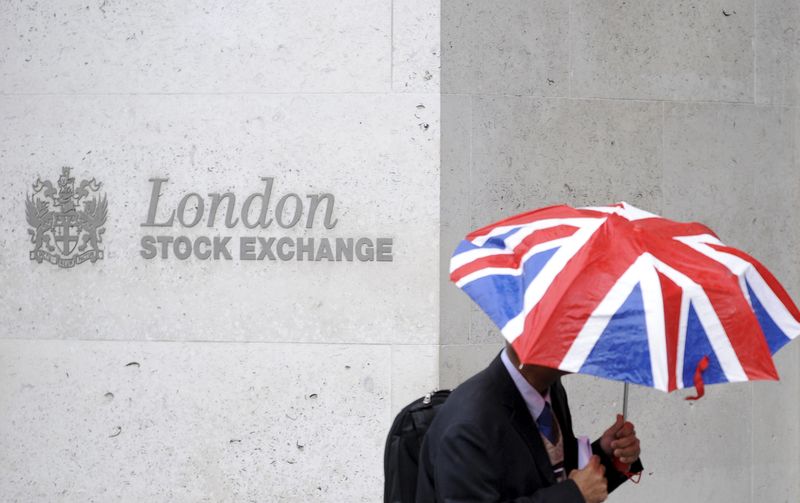By Sujata Rao
LONDON (Reuters) - British funds upped their equity allocations to eight-month highs in January on expectations that a reflationary spending boost expected under U.S. President Donald Trump will extend stock markets' outperformance.
Reuters' latest monthly survey of 14 UK-based funds also showed a majority of investors are preparing for Britain to opt for a "hard" Brexit - leaving the European Union without access to its single market. The poll however showed little change in UK investment positions.
Overall, investors extended their preference for equities to cover 47.4 percent of global portfolios - a two percentage-point increase from December, according to the poll conducted Jan. 16-30.
Bonds and cash dipped, with holdings of the latter falling to 6.3 percent, the lowest in more than a year. Bond allocations fell almost three percentage points to 28.9 percent, a three-month low.
"The threat of rising inflation and tightening monetary policy will act as a further negative for bond markets whilst the anticipation for an acceleration in corporate earnings growth should bode well for equities," Peter Lowman, chief investment officer of wealth manager Investment Quorum, said.
Trump's election win on a pro-growth ticket propelled stocks to new highs, deepened a bond sell-off and boosted the dollar. In Europe, German inflation hit 3-1/2 year highs in January, data showed this week, pushing euro zone bond yields to the highest in almost a year p.
World stocks are up 3 percent this month, while emerging equities - a classic reflation trade - are set for the biggest monthly gain since last March (MIWD00000PUS) (MSCIEF).
"We expect central banks to allow inflation to rise from low levels, suggesting another equity-friendly environment this year," said Trevor Greetham, head of multi-asset at Royal London Asset Management (RLAM).
UK funds' allocations to North American stocks were at 32.8 percent, up almost 7 percentage points from last January.
But investors were not unilaterally bullish.
The party could be spoiled, for instance, if U.S. interest rates rise by more than the market is pricing in.
Of the poll participants who responded to a specific question on the pace of Fed tightening, 60 percent predicted one to two rises this year, and 40 percent expected the U.S. Federal Reserve to move three times.
Nor is everyone confident that Trump can deliver on promises to accelerate growth by cutting taxes, easing regulations and spending $1 trillion on infrastructure. Failure may endanger "Trumpflation" trades premised on faster growth and inflation.
Ryan Boothroyd, an analyst in the multi-asset team at Henderson Global Investors, has trimmed U.S. equities after a strong performance and "the ebbing momentum of the Trump trade".
"We wished to diversify our exposure to the reflation trade away from purely U.S. reflation plays such as the Russell 2000 into cheaper, more globally-oriented reflationary assets such as commodities. Equities are historically expensive relative to real assets," Boothroyd said.
Brexit is also seen as a risk, having pushed sterling down 16 percent versus the dollar in 2016. With Prime Minister Theresa May signalling a "hard" EU exit, the hitherto resilient economy may experience a gradual slowdown, Bank of England officials have said.
Just a quarter of the funds who responded to a question on the subject said they expected a "soft" Brexit. Investors held UK and Europe equity allocations steady, also citing upcoming elections in the Netherlands, France and Germany.
"There is a high risk that the (Brexit) negotiations will simply run out of time, resulting in a harder outcome than either the UK or Europe would like," said Andrew Milligan, head of global strategy at Standard Life (LON:SL) Investments.
